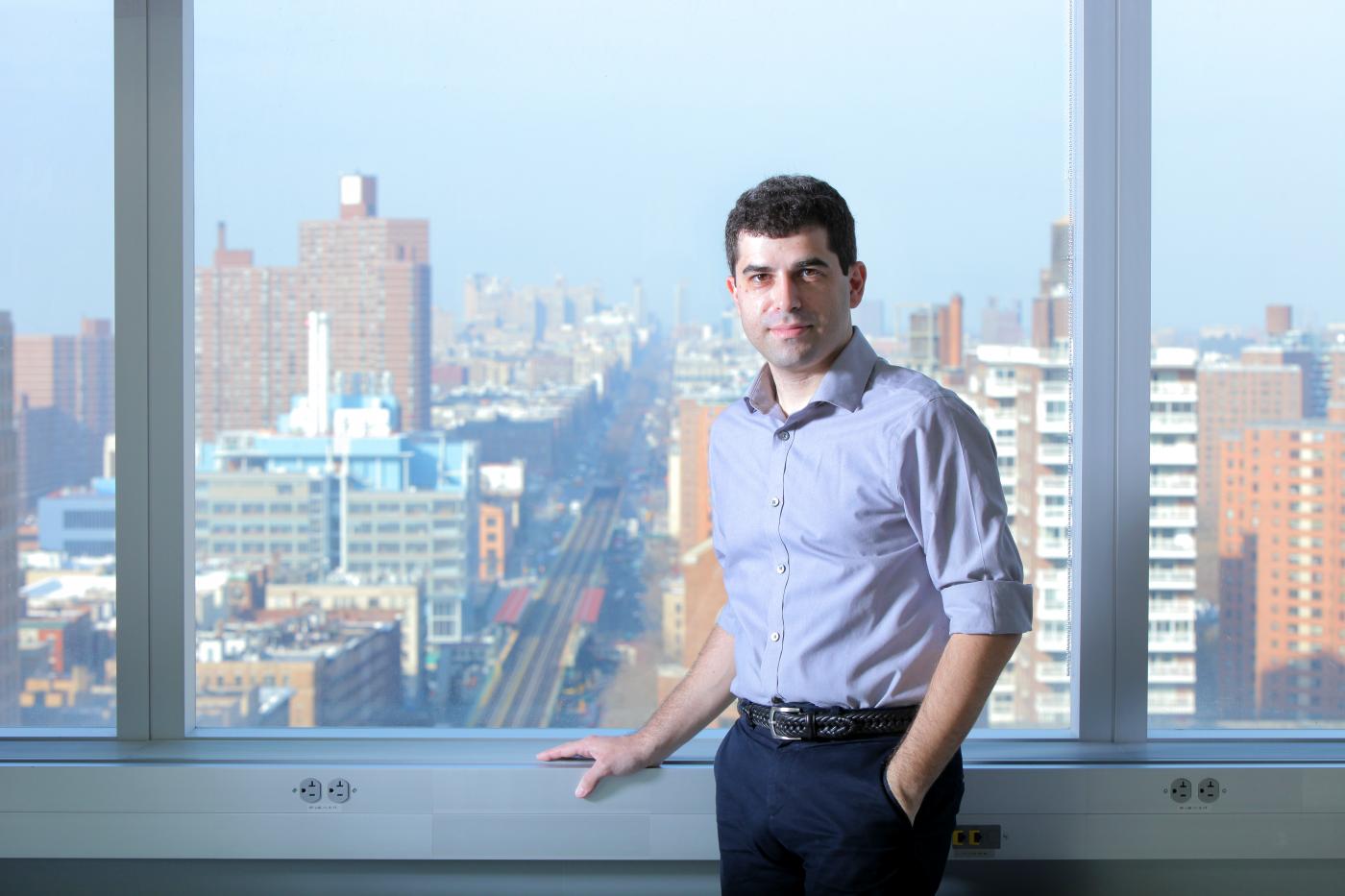New York – Today, the National Institutes of Health recognizes a neuroscientist who studies animals that have some of the best memories on the planet – with the aim of better understanding memory itself.
The recipient of the NIH Director’s New Innovator Award is Dmitriy Aronov, PhD, a principal investigator at Columbia University’s Zuckerman Institute. In his work to understand memory, Dr. Aronov studies remarkable birds – black-capped chickadees and tufted titmice – that can survive the winter by remembering thousands of spots where they hid food earlier in the year.
These feathered mnemonists are providing new insights into how the brain forms the memories that make up our lives.
“We want to know what a memory looks like in the brain,” said Dr. Aronov, also an assistant professor of neuroscience at Columbia’s Vagelos College of Physicians and Surgeons. “To do this, we’re starting with birds that are geniuses when it comes to memory.”
Dr. Aronov hopes that a better understanding of the fundamental mechanisms underlying memory will make possible new treatments for conditions that injure memory: from age-related memory loss to neurological diseases, such as Alzheimer’s.
“We have long way to go in treating disorders that affect memory,” said Dr. Aronov, whose award was supported by the NIH’s National Institute on Aging. “If we want to create better interventions, we need deeper knowledge about the brain structures that give rise to memory.”
Recognizing “exceptionally creative early career investigators who propose innovative, high-impact projects,” the New Innovator Award provides $2.43 million to Dr. Aronov and Columbia University over five years. The grant is given out by the NIH’s High-Risk, High-Reward Program, which supports “unconventional approaches to major challenges in biomedical and behavioral research.”
“Dr. Aronov has developed an especially creative way to study the memories that constitute the narrative of our life,” said Rui Costa, DVM, PhD, director and CEO of Columbia University’s Mortimer B. Zuckerman Mind Brain Behavior Institute. “This epitomizes the type of innovative approaches we use at the Institute to unravel how the brain functions.”
What happens in my brain, when I have a one-time experience that I remember for my whole life?
Embracing the high-risk, high-reward ethos celebrated by this award, Dr. Aronov’s research breaks from traditional experiments. Instead of training animals in the lab to perform memory-related tasks, like navigating mazes, his team has imported a memory-related behavior from the wild, food caching, into the lab.
To explore the prodigious memories of food-hiding birds, The Aronov lab built an artificial habitat and developed new tools for monitoring brain activity. The researchers collaborate with computational biologists, experts in building mathematical models to make sense of the data collected. This partnership between experimentation and theory offers a window into episodic memory, the brain’s ability to recall one-time events, such as hiding a piece of food.
Our lives are composed of such episodic memories, from where we parked our car to what presents we received for our eighth birthday. But according to Dr. Aronov, the processes that underlie their storage and retrieval of episodic memories in the brain are still poorly understood. He hopes to change that.
“What happens in my brain,” asked Dr. Aronov, “when I have a one-time experience that I remember for my whole life?”
“Answering this question will help us better understand ourselves,” he said. “You are your memories – your personality and sense of self depend on them – so for me this is the most exciting problem to work on in neuroscience.”
####
The New Innovator Award is given by the National Institutes of Health. The award number is DP2 AG071918-01.
